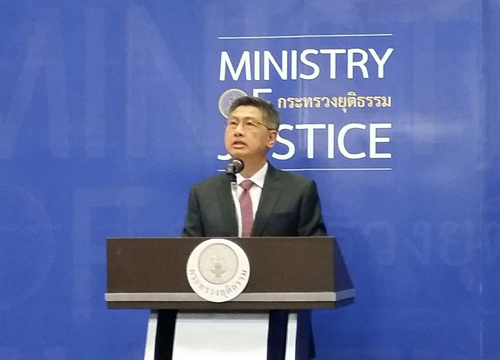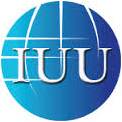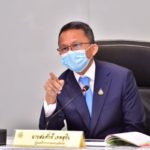
Thailand’s Ministry of Justice last week instructed all authorities under its command to pursue the “big fish” – believed to be state officials – behind transnational syndicates involved in human trafficking as well as investigating the financial activities of officials suspected of working with the gangs, as the Thai government attempts to take its war on trafficking to the next level.
Wisit Wisitsora-at, the permanent secretary and highest-ranking bureaucrat at the Ministry of Justice, told reporters that orders had been given for everyone to “track down high-ranking civil servants and influential businessmen” who are involved in trafficking. The orders came from a recently established ministry panel tasked with coordinating and increasing the effectiveness of the fight against human trafficking, with a focus on nabbing officials who are either involved or complicit.
Police and prosecutors have made substantial progress on several cases involving state officials, Wisit said, but most of the officials were relatively low level. Higher-ranking officials are believed to be involved but investigators have not succeeded in bringing them to justice. More needs to be done.
Thai police and prosecutors did recently succeed in arresting and successfully prosecuting and convicting dozens of members of a syndicate trafficking Rohingya Muslims from Myanmar, with an army general and several local politicians receiving long prison terms in the largest human trafficking case in Thai history. Suspicions persist, however, that more and higher-ranking authorities were part of that criminal enterprise or part of other trafficking gangs.
The United States Department of State has called on Thailand to do more to identify and prosecute state officials involved in human trafficking in its most recent annual global report and rankings on trafficking in persons. Lack of stronger action against officials appears to be the key stumbling block to Thailand moving up in the State Department rankings.
Prime Minister Prayut Chan-o-cha has stated that no one will be spared from justice, no matter their rank or affiliation, if they are working with or helping transnational human trafficking syndicates. The prime minister has made the fight against trafficking a national priority.
Wisit said that among the stepped up measures ongoing, the panel is working with other government agencies on examining the financial streams and assets of state officials suspected of involvement in trafficking. It will also review past cases against officials to determine whether or not they had been adequately punished for crimes or violations. It will take legal or disciplinary actions against any authorities who have meddled in or hindered any trafficking investigations.
“The panel also agreed that civil servants who are found guilty of buying sex from underage prostitutes will also face a human trafficking charge,” he said.
Officials at the Department of Special Investigation said they hope to conclude five major trafficking cases within the next eight months, some of which involve state authorities. They cautioned, however, that building solid cases takes time, which is frustrating to outsiders, but is necessary in order to uncover and gather evidence against the higher ups in the syndicates.




